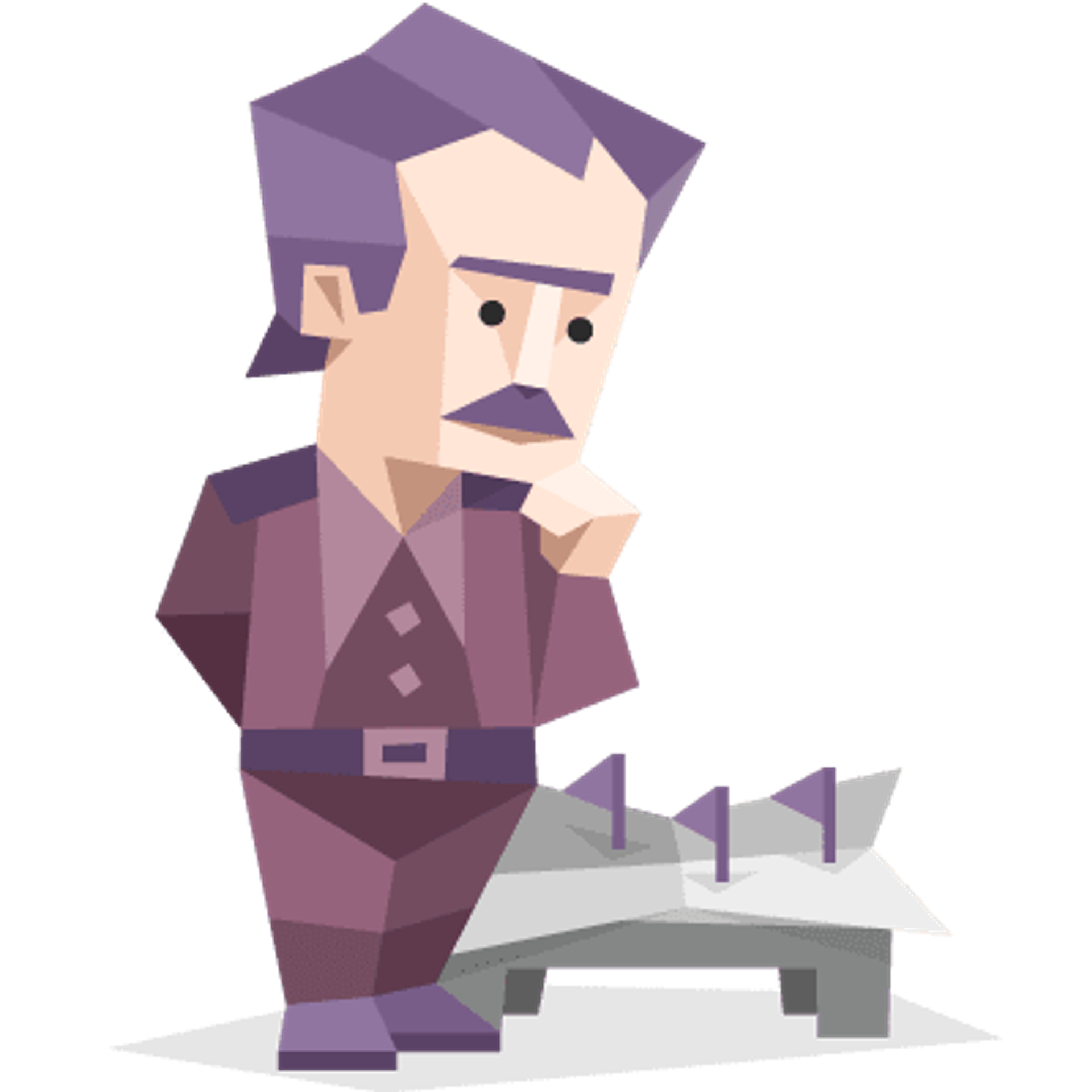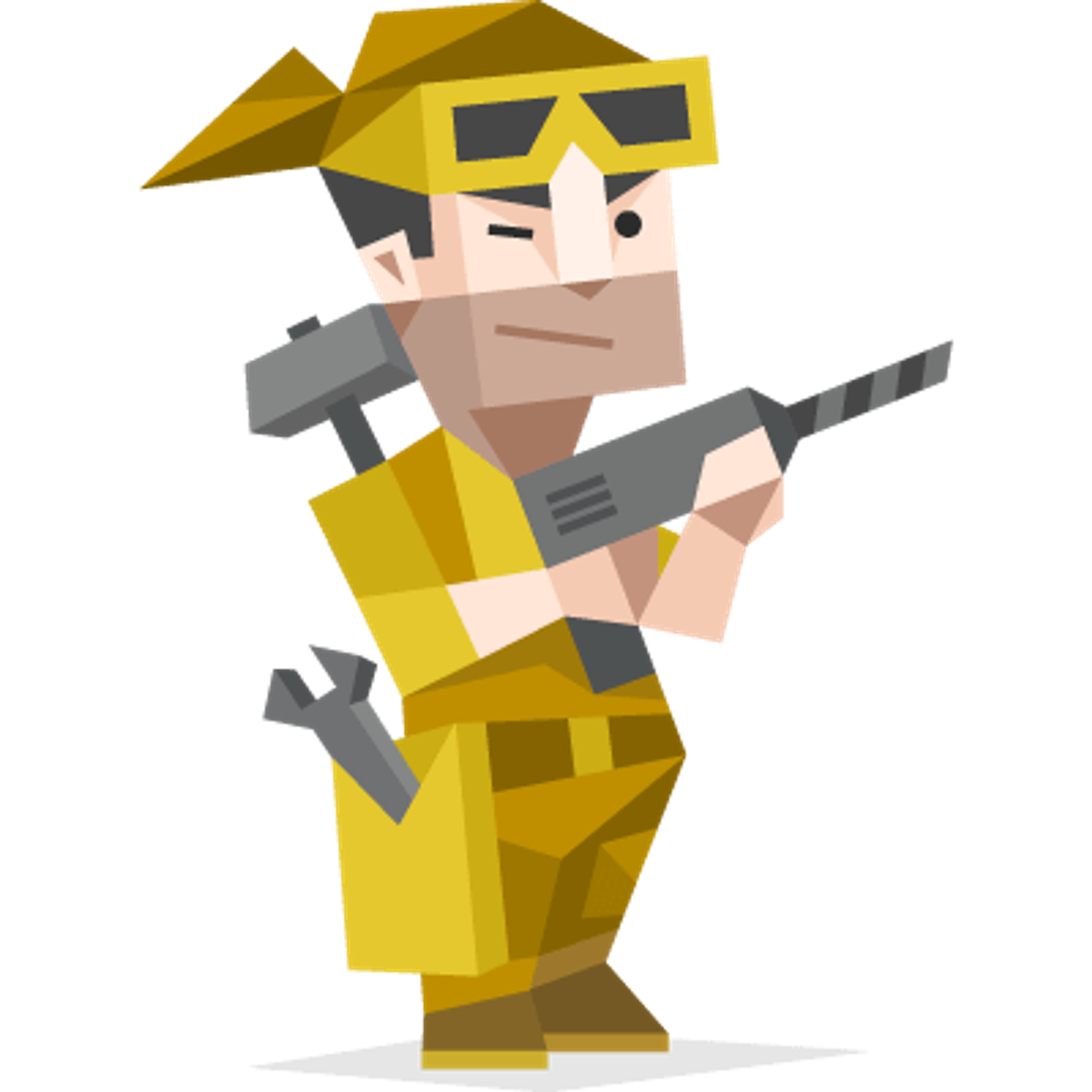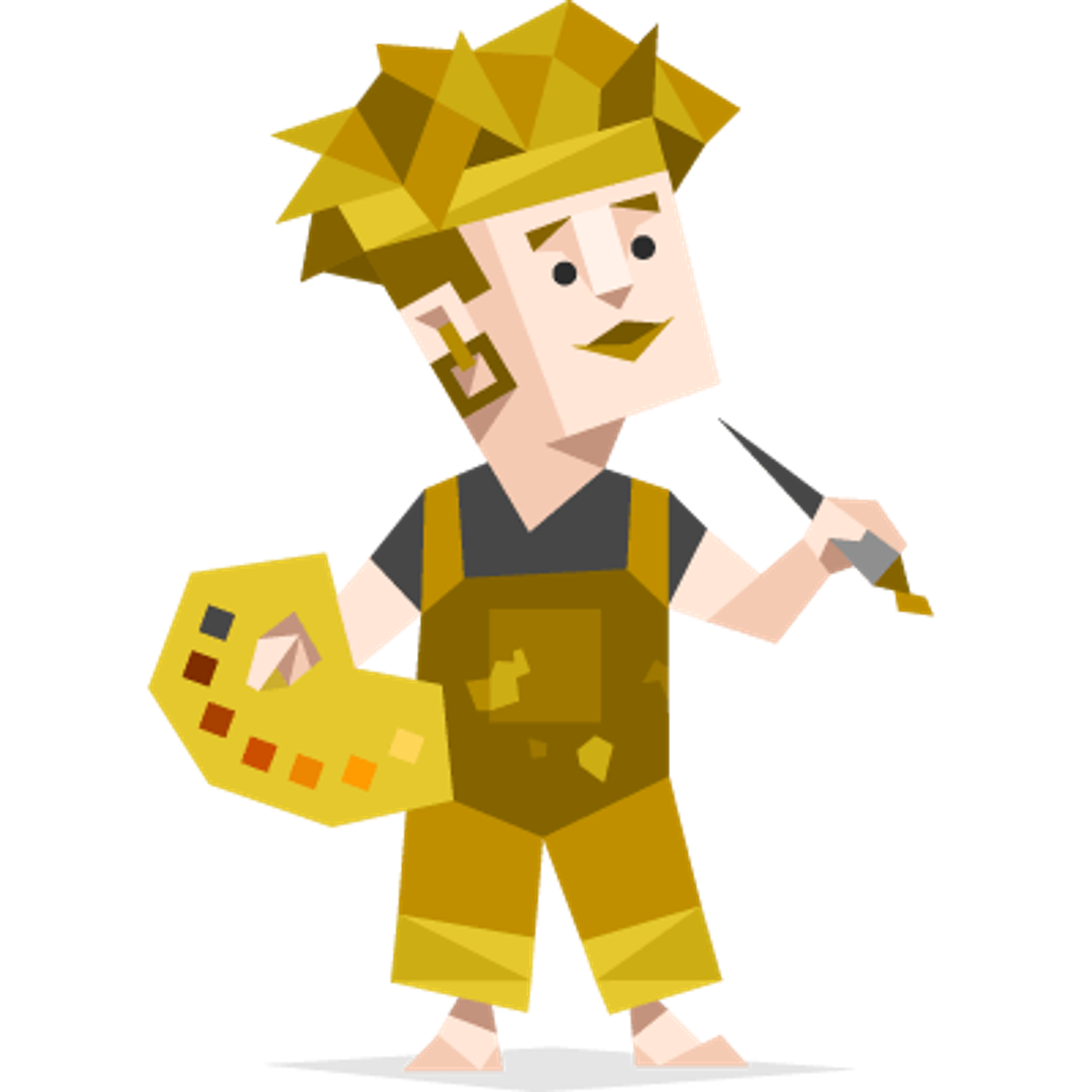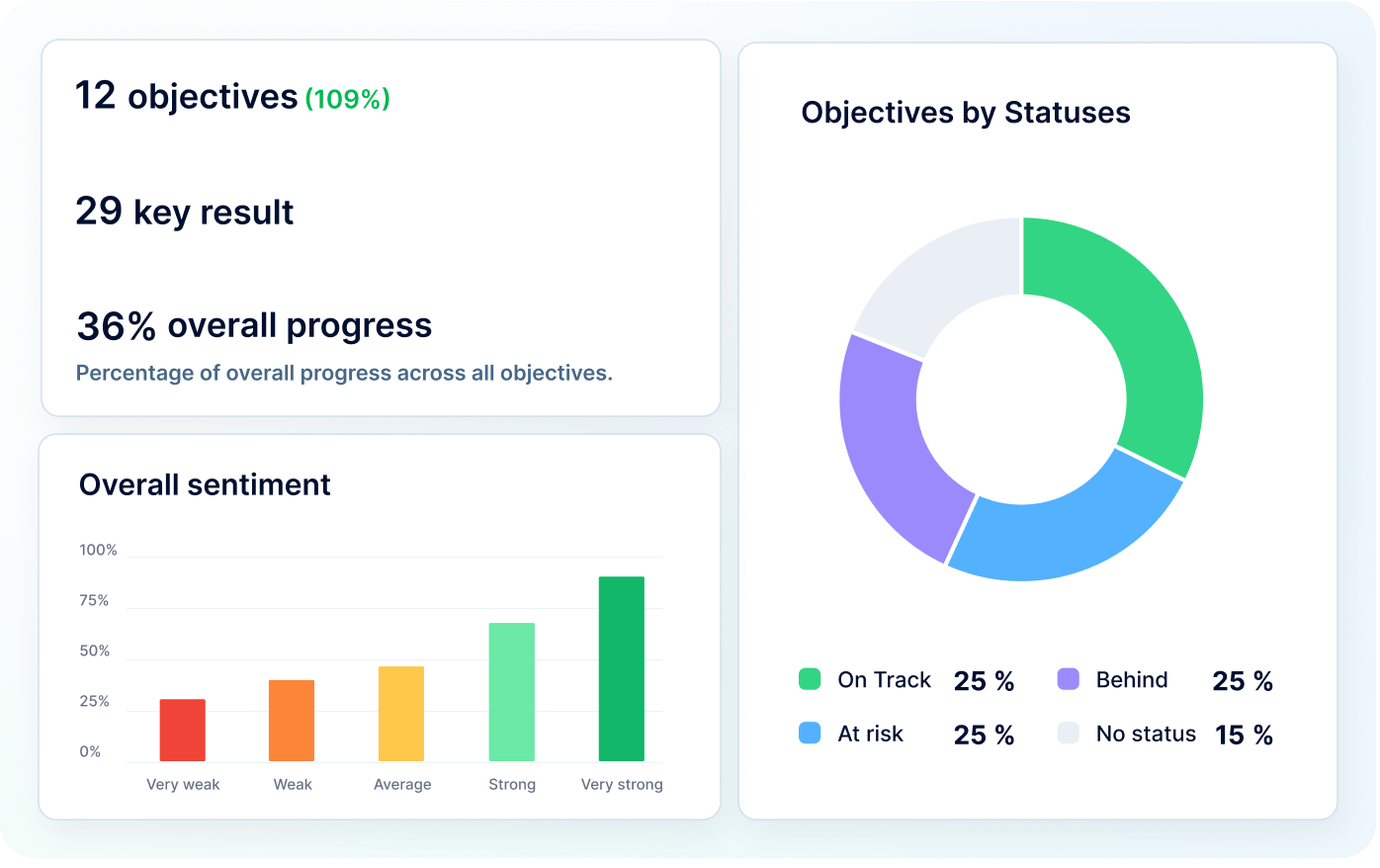
How to work with different types of employee personalities after the 16 personalities test?
In the previous article in this series, we shared tips on how and why to take the Myers-Briggs test in the workplace, and in which areas of HR it is applicable. However, it is important not only to know about the test but also to work with the results in practice. Let's assume your team has taken the test, and you have a table with the personality types of your colleagues. What should you do next?
Let's try to figure out how to work with each personality type separately. Where to find leaders, creators, and ideal performers?
Extraverted personality types of employees
Tip: Extraverted types (E at the beginning of the code in the 16 personalities test) generally are better suited for teamwork and enjoy being in an office. It is believed that they often make better company leaders, but keep in mind that sometimes they need a little push toward this path of development if there is potential.
ESTP. Entrepreneur. Energetic "problem solver"

He loves risk and strives to solve emerging problems quickly. He is passionate about his work but may show impatience regarding long-term projects, as he struggles to focus on one thing. Mavericks are an asset to any team, but they are hard to manage because they do not easily follow rules.
- Engage in actively evolving projects or tasks that are not stagnant
- Invite to brainstorming sessions
- Come up with new engagement goals so that the Dealers can focus on something short-term and fun, setting an example for the team
- Entrust decision-making on complex short-term tasks and conflict situations
- Do not limit creative and unconventional approaches to task execution
- Do not impose strict boundaries and rules if you want to achieve maximum results

ESFP. Entertainer. Enthusiastic Improviser
The soul of the team that everyone loves. Can draw and boast about achievements. Energetic, full of enthusiasm, the ideal performer who shines in creative professions. If there is not enough creativity in the work environment, the "entertainer" will try to stay in the center of attention.
- Engage the Entertainer in creative activities: planning or shooting videos, writing advertising slogans or creating visuals, any marketing communication, recording podcasts, creating presentations
- Let them express themselves in Zoom calls, suggest turning on the camera if they need it
- Involve them in team-building processes and their organization, events, or webinars
- Encourage sharing results or motivation with the team, especially in remote work
- Do not delegate routine monotonous work to the Entertainer
- Do not prevent them from demonstrating their creative nature by forcing them into a corporate style and strict company policies

ENFP. Fighter. Motivator with imagination.
Insightful individuals, naturally experimental and inquisitive. They possess a strong, intuitive character and enjoy the company of colleagues. They are often guided by feelings rather than logic in work situations. It is important that a Fighter is motivated by an idea and a sincerely set goal (for example, the company's global goals) rather than by money.
- Good at generating ideas and team collaboration, especially under tight deadlines
- Deadlines and time constraints generally motivate this personality type more towards the end than at the start
- Perform better in an office environment than in remote work
- Need gentle reminders about the importance of a task or project – as soon as the Fighter feels that the idea is important, they will not back down from its implementation
- Motivates the team when they are tired or starting to burn out
- Fighters need to be trained to communicate without pauses, especially when it comes to remote work. They can relax and leave you without feedback for a long time.

ENTP. Polemicist. Entrepreneurial researcher.
Charismatic intellectuals. Many leaders are this type of personality. The dark side of the Polemicist is a tendency to manipulate others to achieve a common goal. He is a logician; rationality and objectivity are his strengths. But one cannot leave a Polemicist without mental work for too long – he will get bored.
- Prefers to generate ideas and tasks for execution, but is not an executor himself
- Has a good understanding of the service or product, can impress clients and partners, so it is advisable to let them handle verbal communication with a third party – they won’t let you down
- Invite Debaters to crucial calls about agreements – they will not only positively influence decision-making but can often negotiate better terms – a discount, for example
- Dominate conversations, so they need moderation when it comes to communicating with the team, to avoid pressure and manipulation
- Don’t ignore the Debater's desire to frequently resolve issues through calls – they need to hear you and interact
- Trust Debaters with strategic planning

ESTJ. Manager. Successful organizer
This type is often called a "guardian angel." A manager is a pragmatic, hardworking, organized, methodical person who is loyal to their team and the company they work for. Such individuals are often chosen as team captains in any practical training or team-building exercises. They also know the ins and outs of the team best, including its emerging problems. Managers are often veterans of the team, as they tend to stay in one position for a long time and do not have the ability to change positions or companies with enviable regularity. They can influence the team by encouraging loyalty and engagement, as well as acting as brand advocates.
- Trust the Manager with the organization of anything – employees, events, holidays, or corporate parties
- Keep an eye on them so that the love for organization doesn’t turn into a power urge and a desire to control everything around 24/7
- It's important to establish a personal connection with the Manager – this is another type of personality, besides the Debater, whose calls cannot be ignored
- They perform equally well both in the office and remotely, thanks to their organizational skills
- They make good mentors

ESFJ. Consul. Support in flesh.
A personality type that puts the needs of the group or a specific representative first. Very kind, attentive, and ideal helpers for the HR department in assessing team morale. They help with organizing entertainment on an ongoing basis – the Consuls will check if there are cookies in the kitchen and if those cute stickers are hanging on the refrigerator.
- Consultants make the best project managers (team leads)
- They excel in teamwork
- Deadline is their second name, one of the rare personality types who always meets deadlines
- A consultant is also an excellent choice for a mentor or buddy. During the onboarding period, they can help newcomers get acquainted with the company and will always be happy to inform them about what they are missing

ENFJ. Coach. A passionate facilitator.
Another group of natural leaders, but unlike their colleagues the Polemists, this type is driven by intuition and feelings. These are the people in a team who inspire: extremely goal-oriented, yet very sensitive to the needs of others. Abraham Lincoln and Barack Obama are classic ENFJs. Good orators and speakers at events. This type is often more of a leader of hearts than a leader by position.
- They prioritize the company's goals above all, directing their objectives toward achieving the common good
- It is necessary to moderate the Coach, who becomes overly passionate about work. This type often overworks and can be the first candidate for burnout
- If the coach becomes indifferent to a project or task – it's all lost. Therefore, it is best to place them at the head of inspiring new projects
- They are good in group discussions, often bringing in a rational perspective
- Trust the Coach to reconcile colleagues with differing opinions and find common consensus

ENTJ. Commander. Decisive strategist.
Yes, this personality type is also considered a leader. However, it is important for the Commander to know the line between leadership and pushing their own idea at any cost. They are individualists who see the picture in a certain way and strive to achieve it. Charismatic, they are able to instill their vision in the minds of others. If it is infallible, the team can expect success. However, Commanders are still advised to learn to listen to others and work together.
- Always thinks outside the box and finds unconventional approaches
- Very self-confident – Commanders are best at outlining ambitious plans and goals
- Can and should work exclusively in the company of others – in an office, co-working space, to be present during discussions of ideas in person and remain connected to the team
- It is strongly advisable not to trust a Commander to handle tasks remotely – unless it is a solo project
- This type is also recommended to be involved in final negotiations and decisions, especially when it comes to financing or investments. They will manage to convince investors that it is worth it
Introverted personality types according to the Myers-Briggs test in a team
Tip: Introverted personality types are not the same as closed-off and unsocial employees. This is one of the common myths about introversion. Rather, among the personality types with an I at the beginning of the code, there are more creative, thoughtful employees who express themselves more vividly and generate more ideas not in a large group, but alone or while working remotely. These are the creatives, often burning out in the process, who need to be looked after.

ISTJ. Administrator. Responsible realist.
For the Administrator, order and clarity are important. A staunch supporter of the company's values, especially if they include social responsibility. That is why they can be trusted with CSR work. They are the backbone of the company – reliable, organized, and diligent.
- You can confidently trust working from home, even from the other side of the world
- This type does not need constant supervision and monitoring of work, he is autonomous and knows his job perfectly
- The administrator can be entrusted with organizing the department's goals or the weekly schedule. This is the person who won't forget a single meeting and will plan them conveniently for others
- The administrator can be entrusted with managing the company's messengers or task manager
- It is important not to take administrators for granted – if you treat them with condescension and ignore their needs, you may quickly find out that they are looking for another job. You will lose a good employee who will definitely find a company that will appreciate him

INFJ. Activist. Visionary-insightist.
These are creative people, but at the same time, they are firmly grounded. Assertive, always full of ideas, they are well aware of both their employees and potential subordinates, as well as the product or service they work with. Empaths, inclined to keenly sense the strengths and weaknesses of anyone they interact with. Thinkers – they can express their opinions on any team activity and management plans without fear, but they immediately offer an alternative development option.
- They have a great understanding of people, so they can be invited to participate in joint candidate interviews
- The gray cardinal of Zoom calls. Don't force them to always be in view with the camera on – they are the type who will carefully evaluate the conversation or situation from the sidelines, but will never stay out of it
- Ask for their opinion, especially if there is a creative task that requires a special approach
- If you need insight into the team's weaknesses from the inside, ask the Activist about it

INTJ. Strategist. Conceptualizer with plans for the future.
Innovative perfectionists who feel comfortable in solitude and thrive in a remote work environment. People with this personality type are naturally good at problem-solving and turning ideas into action plans. They represent a dual approach: possessing both intuitive and practical thinking, which makes them excellent strategists, attuned to the latest market trends.
- Do not force a Strategist to communicate on calls – they prefer to express their thoughts in a text message or email
- They often submit tasks much earlier than deadlines, so they do not always take responsibility for the quality of work
- They are good at outlining plans, breaking down tasks, and can easily see where additional hands are needed and where to push harder
- Monitor their activity to prevent it from getting scattered across multiple assignments at once. Strategists excel at focusing on one thing at a time

ISFJ. Defender. Supportive practitioner.
If it weren't for the letter I, you would consider them extroverts. Defenders value collaboration above all else, they are socially active, possess a strong work ethic, and are sensitive to the desires and feelings of their colleagues. But behind their enthusiasm lies a steel core: Defenders are typically very conscientious workers, natural managers, capable of maintaining connections between remote teams.
- Guardians exhibit incredible attention to detail, making them perfect for reviewing the work of others, editing shared documents, or reviewing presentations and corporate proposals
- They adhere to corporate rules and inspire others to do the same, so watch how they enhance the efficiency of the entire team if that is the goal
- The Guardian achieves their goals overall faster than others, which encourages the team to speed up
- Invite them to any collaborative work or meetings in and out of the office

ISTP. Virtuoso. Logical Pragmatist.
The most unpredictable of the 16 personality types, because the Virtuoso is usually rational and logical, but easily switches to spontaneity and enthusiasm. If you balance between the two states and support the Virtuoso in all endeavors, you can bring a lot of positivity to the team.
- Driven, so they require an individual approach to feel important and maintain their enthusiasm
- Effectively moderates themselves and others while working remotely, quickly resolving any technical issues or inconsistencies in task management (delegating tasks)
- Love all things new – trends, tools, they will be your guides into the world of new programs and software that simplify life and work
- Demand attention but do not like to be the center of it. Virtuosos always have their camera off, and during calls, they are often occupied with something else, so check their work and encourage timely task completion
- A good tactician to pair with a dynamic strategist, visionary, or leader. On one hand, he resonates with them on a wave of logic and pragmatism; on the other, he sees how to implement ideas in a simpler and more effective way

ISFP. Artist. Versatile energizer.
The least conflict-prone personality type, who is always available, open to communication, friendly, and cannot stand quarrelsome groups. This type is sometimes referred to as the Adventurer, because this type is a pioneer; they see great potential in exploring the new.
- Very energetic, but easily burns out because of this, so the Artist needs to be directed and not overloaded with tasks.
- This type prefers to be visible and to combine office hours with home gatherings. With a hybrid schedule, the Artist will draw energy from other team members.
- If the team is burning out, the first signs appear in the Artist's actions – his enthusiasm and productivity decline because people stop inspiring him.
- This personality type benefits from training and learning from the team, ideally – attending inspiring conferences.

INFP. Mediator. Thoughtful idealist.
People with clearly developed ideas and a well-established value system often find themselves lost in their dreams. Despite bringing enthusiasm and creativity to projects, they often find it challenging to maintain this excitement over a long period of time.
- The Mediator, due to their idealistic value system, tends to react very sharply to injustice within the team. If it occurs, especially if directed at them, there is a risk of attracting someone who could significantly damage the employer's brand reputation.
- If the team is non-toxic, the Mediator develops their best qualities – maximum dedication to the common cause, loyalty, creativity, unconventional problem-solving approaches, involvement, and commitment.
- The Mediator is the complete opposite of the Commander when it comes to task management. This type is best suited for remote work, where the Mediator will shine, accomplishing everything without needing oversight.
- If the project aligns with their high moral standards, the Mediator becomes an unstoppable, unyielding force in its execution.

INTP. Scientist. Objective analyst.
They value competence and logic, love well-trodden paths, and quickly notice gaps in work or inconsistencies. Like Mediators, they feel best in isolation, alone with themselves.
- Let the Scholar do their original work and do not interfere until you see the final result – trust me, it's worth it
- A weak point is the inability to listen to other solutions and options. It becomes more pronounced in remote work, so – unlike Intermediaries – Scholars need to be monitored
- Remind them of the importance of keeping their tasks in the common task tracker, so that other types can understand the direction their curious and original mind is heading
What to do if the results do not match the actual qualities of the employee?
With over five years in HR tech content creation, Maria explores how technology, people, and culture shape the workplace of today. Her interests include HR, AI, IT, and personal development, and she brings a data-driven, human-centered perspective to her writing.
Get started with PeopleForce today
Automate your HR routine to create a high performance culture in your company. PeopleForce is your best HRM alternative to stay business driven but people focused.

Recent articles
Typing employees using the 16 personalities test: 6 ways to use It at work
The 16 personalities test is an unconventional way to learn more about your employees. Here's how to use it effectively.
How to work with Gen Z in the workplace
With such different priorities, getting all four generations working together smoothly may be daunting. We’ll share the benefits of managing them and tips on how to do so successfully.
Personality type tests: why do they matter to businesses?
Personality type tests help identify the ideal candidate or develop an existing employee in the company.

